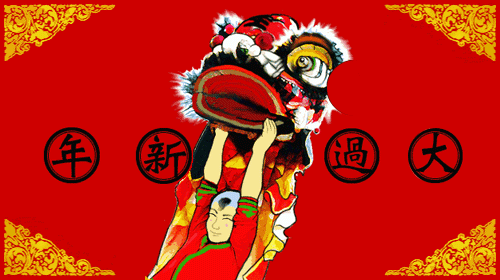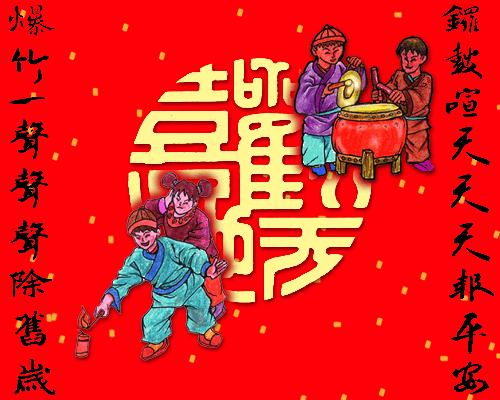To learn the latest products
Chinese Spring Festival Holiday Notification
Jan,15,2009

Dear Customers,
Please kindly be informed that we will take our Chinese Spring Festival Holiday, Our company will be closed
From Feb. 4 to 13, 2008
And will be reopened on Feb. 14, 2004, During this period of time, we will try to check e-mail everyday, if anything urgent, you are welcome to contact:
Mr. Jason Yang
Director,Marketing & Sales
Mobile Phone: +86 185 7520 6951
E-mail: bbe@bbeled.com

The origin of the Spring Festival For the Chinese, the Spring Festival is the first traditional festival during the year. It was called "New Year" in the past because according to the lunar calendar long used in Chinese history it is the first day of the first lunar month, marking the beginning of a year. The celebration of the Spring Festival has a history of more than 4,000 years, which is originated from Emperor Yao. One day around 2000 B.C., Yao took the throne and led members of his court to worship the heaven and the earth. Since then, people began to take that day as beginning of the year and marked it the first day of the first lunar month. After the 1911 revolution, China adopted the Gregorian calendar, and changed the lunar New Year into "Spring Festival", which, according to the Gregorian calendar, falls between late January and mid February. The night before the Spring Festival is called chuxi, or New Year's Eve. This is an important moment for family reunion accompanied by a rich "New Year dinner"; many people stay up all night to see the Old year out and the New Year in. The next day, people begin to visit relatives and friends to exchange greetings. During the festival, the most popular celebration activities include lion dance, dragon dance, boating race and walking on stilts. The legend of "Nian" beast Legend has it that there once lived in ancient China a ferocious horned beast called "Nian" (literally means "year" in Chinese). The beast stayed in deep sea throughout the year but surfaced on the New Year's Eve to eat cattle and people. So, at every New Year's Eve, all people, bringing along the old and the young, fled into deep mountains. Another New Year's Eve, an old man, who looked radiant with health, entered the Peach Village. After asking some food from an old lady living at the eastern end of the village, he insisted on staying overnight at her house despite warning of danger. At midnight, the "Nian" beast broke into the village, but smelled a different atmosphere: the old lady's house was brilliantly lit, with red paper pasted on the door panels. The beast pounced forward with a roar, but stopped short and shivered, as the sound of crackling and spluttering suddenly came from the courtyard. In fact, the beast feared most the red color, fire and sound of explosion. Just at that time the door opened and out came the old man in a bright red cloak, laughing heartily. The beast was so scared that it ran away in panic. This gives rise to the habits of pasting red-paper couplets and letting off firecrackers at every household, as well as the lighting up of candles and staying up all night. Six major activities during the Spring Festival Dusting: This refers to yearend cleaning, which also carries the meaning of sweeping all "bad lucks" or "evil spirits" out of one's house. Pasting: To paste New Year couplets, pictures and the character of "Fu" (bliss) on gateposts, door panels and windows. Inviting: To invite the gods of kitchen and fortune. Staying Up: In the past, for the old, staying up all night on the New Year's Eve meant to cherish fleeting time, and for the young, it meant to pray for a longer life for parents. Greeting: Greetings must be given to older generations and exchanged among the same generation. Playing: By playing the dragon dance people pray to the god of dragon for good weather and rich harvests. Two important things during the festival Money wrapped in red paper. This is meant for unmarried children (in traditional Chinese ideas one can only be counted "adult" when he marries), to convey best wishes and good luck.



